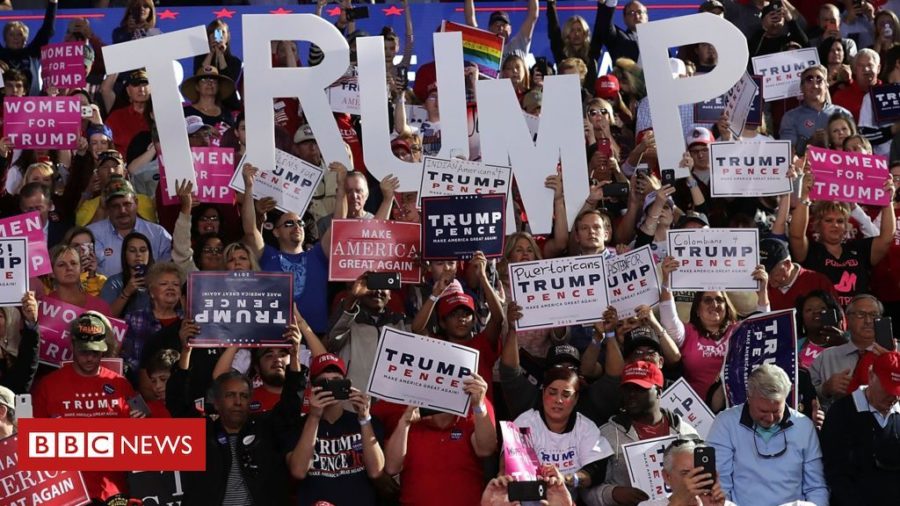Why marginalized communities support Donald Trump
March 1, 2021
Despite former President Donald Trump’s effort in claiming he’s the “least racist president,” opinion columnists continue to critique him as the “most racist president in modern history,” yet he still has support from some marginalized communities.
The support for Trump from voters who identify as Black, Latinx, Asian and of other marginalized groups rose in the 2020 election compared to the 2016 election, Edison Research found in their 2020 election exit polls.
Iowa State students who identify as Black, Indigenous or people of color (BIPOC) spoke about their families’ support of Trump and how that was characterized.
“They want to be white… or assimilate. They also have, like, some levels of self-hatred towards their own ethnicity,” Scott Nguyen, a senior in aerospace engineering, said about the Vietnamese community supporting Trump.
Intolerance toward one’s ethnicity doesn’t just appear in the Vietnamese community; it’s also shadowed in the Latinx community.
“There are people who don’t want more Mexicans to come [into the United States] even though they themselves are Mexican,” Jesica Flores, a junior in political science, said.
Flores said Mexico is currently dealing with immigration problems concerning other Latin American countries, which enables this preconceived bias toward others in the Latinx community, even those in the United States.
Students have said family members they know support Trump are mainly composed of the older generations.
“All of my older generation family members like my grandma and my aunts and uncles and my mom and dad support Trump,” Jennifer Ly, a junior in industrial design, said. “They understand how he treats other people and they don’t agree with that. The one thing they do agree with is his view on pro-life.”
For Ly, her family’s support of Trump stemmed from their religious backgrounds. She explained that her family values the importance of their religious beliefs of pro-life, which aligns with Trump’s.
Like Ly, Nguyen’s Vietnamese family also advocated for Trump, however, for an entirely different reason that has nothing to do with value alignment.
Since the spread of COVID-19, anti-Asian racism has also spiked as people are relating the virus to all Asian ethnicities. Despite Trump’s replacement of the word coronavirus into “Chinese virus,” he continues to have support from the Asian community.
“Basically, all of my older family members — my uncle and my dad, my grandma — support Trump,” Nguyen said. “That part of Trump that really resonates with them is the anti-China, anti-communism sentiments.”
Many of those in the Vietnamese community were refugees of the Vietnam War. During those times, they were already exposed to a communist regime, which has impacted their support for the Republican Party and for Trump.
Nguyen said it’s difficult to describe to his family members why Trump may not be a good candidate to be president, yet he’s challenged by the language barrier and his family’s fear of communist-influenced policies.
However, students still ponder Trump’s attraction that has led BIPOC to support him more in the 2020 election than before.
“It doesn’t even make sense, in my opinion, for people of color or minorities to support [Trump] because he obviously doesn’t want to represent them,” Flores said.
Ly believes that not everyone who identifies as BIPOC and supports Trump is racist. Everyone has their own reasons behind their support.
“You could follow someone and still have things you want them to fix or want them to be better at,” Ly said.

















